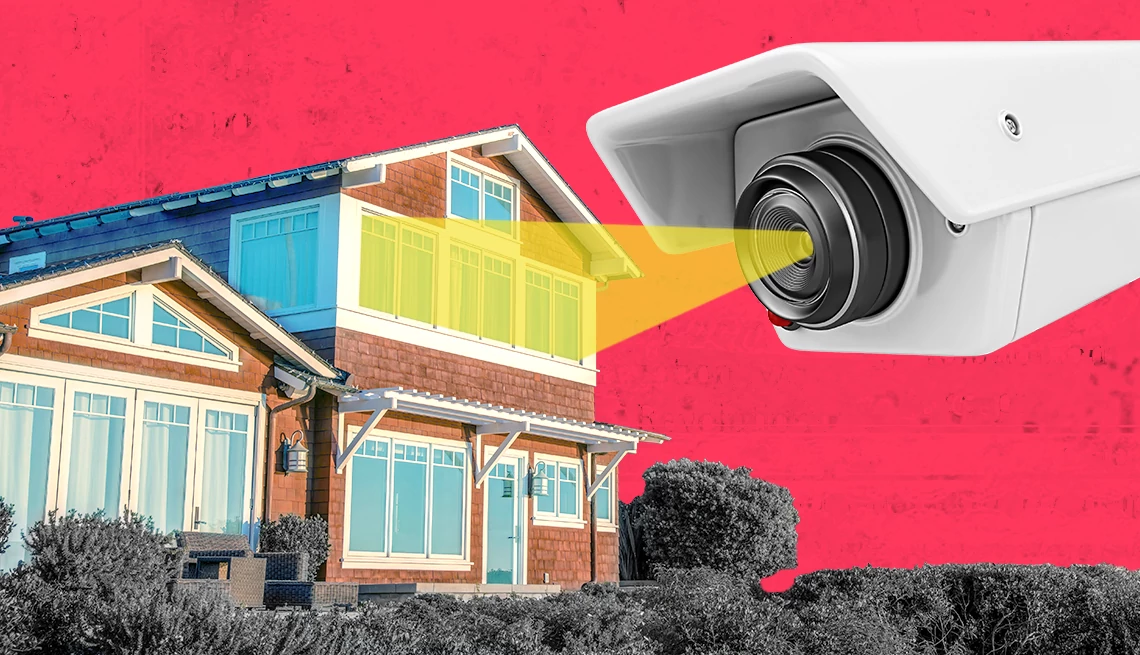
Airbnb bans indoor cameras. Here’s how to be a good vacation rental host, guest
- Select a language for the TTS:
- UK English Female
- UK English Male
- US English Female
- US English Male
- Australian Female
- Australian Male
- Language selected: (auto detect) - EN
Play all audios:

In an effort to put privacy at the forefront of its guest experience, Airbnb will implement a global ban on the use of indoor security cameras in all rentals. The revised camera policy goes
into effect April 30, and any hosts who do not adhere to it will be subject to having their listing removed from Airbnb’s platform. The homestay rental company had allowed indoor cameras in
common areas such as hallways and living rooms. Under the new guidelines, outdoor cameras and decibel monitors will still be permitted, as long as the general location is disclosed before
booking and the devices do not intrude where privacy is expected indoors and outdoors. Airbnb joins other home rental companies, such as Vrbo and Homes & Villas by Marriott Bonvoy, in
not allowing indoor cameras in rental units. Vrbo instituted its camera ban in 2022. According to Homes & Villas by Marriott Bonvoy, any external cameras in areas such as the pool or
patio are disclosed to guests in the property description and must face away from private guest areas. At Airbnb, “our goal was to create new, clear rules that provide our community with
greater clarity about what to expect on Airbnb,” said Juniper Downs, Airbnb’s head of community policy and partnerships, in a March 11 statement announcing the change. This isn’t the first
time Airbnb has revised a policy. In 2022, it made its pandemic-era party ban permanent. For Oman-based Airbnb guest Nicole Brewer, who uses the rental site a few times a year, this policy
is a welcome change. “I’m grateful that Airbnb has banned cameras on properties. I feel like they were an invasion of privacy while on holiday,” she says. “You don’t have cameras in hotel
rooms, so you shouldn’t have them in your Airbnbs either.” Vrbo’s “policy prohibits any cameras that capture the inside of a property (whether they are indoors or outdoors),” says Melanie
Fish, a Vrbo spokesperson. “Vrbo also requires disclosure of outdoor cameras, including additional disclosures if the outdoor cameras also capture pools.” The company has an extensive
vetting process that allows renters to find a listing that works best for any concerns or needs. According to Vrbo, prospective renters can use a filter to search for a Vrbo Premier Host,
noted on the site by a special badge. These hosts have received 4.4-plus guest review ratings, a 95 percent or higher acceptance rate, and at least five bookings, or 60 booked nights, across
property portfolios. Homes & Villas by Marriott Bonvoy has a collection of more than 140,000 premium and luxury whole home rentals. The global company aims to foster a good renter
experience by working with property management company hosts that adhere to the high standard of Marriott hotels around the world. “We see vacation rentals continuing to be a desired
accommodation choice for travelers, and Homes & Villas by Marriott Bonvoy complements our hotel business by offering more options and space, as well as access to more destinations for
our guests,” says Jennifer Hsieh, vice president of the division. Ruth White, 60, has rented more than 25 Airbnb properties in 14 countries over the past nine years. She welcomes the new
policy and added privacy. “Airbnb is supposed to be my home away from home, and while I understand the need for security on the outside, I am not willing to have my privacy invaded at that
level, so I am very happy about the ban,” she says.
